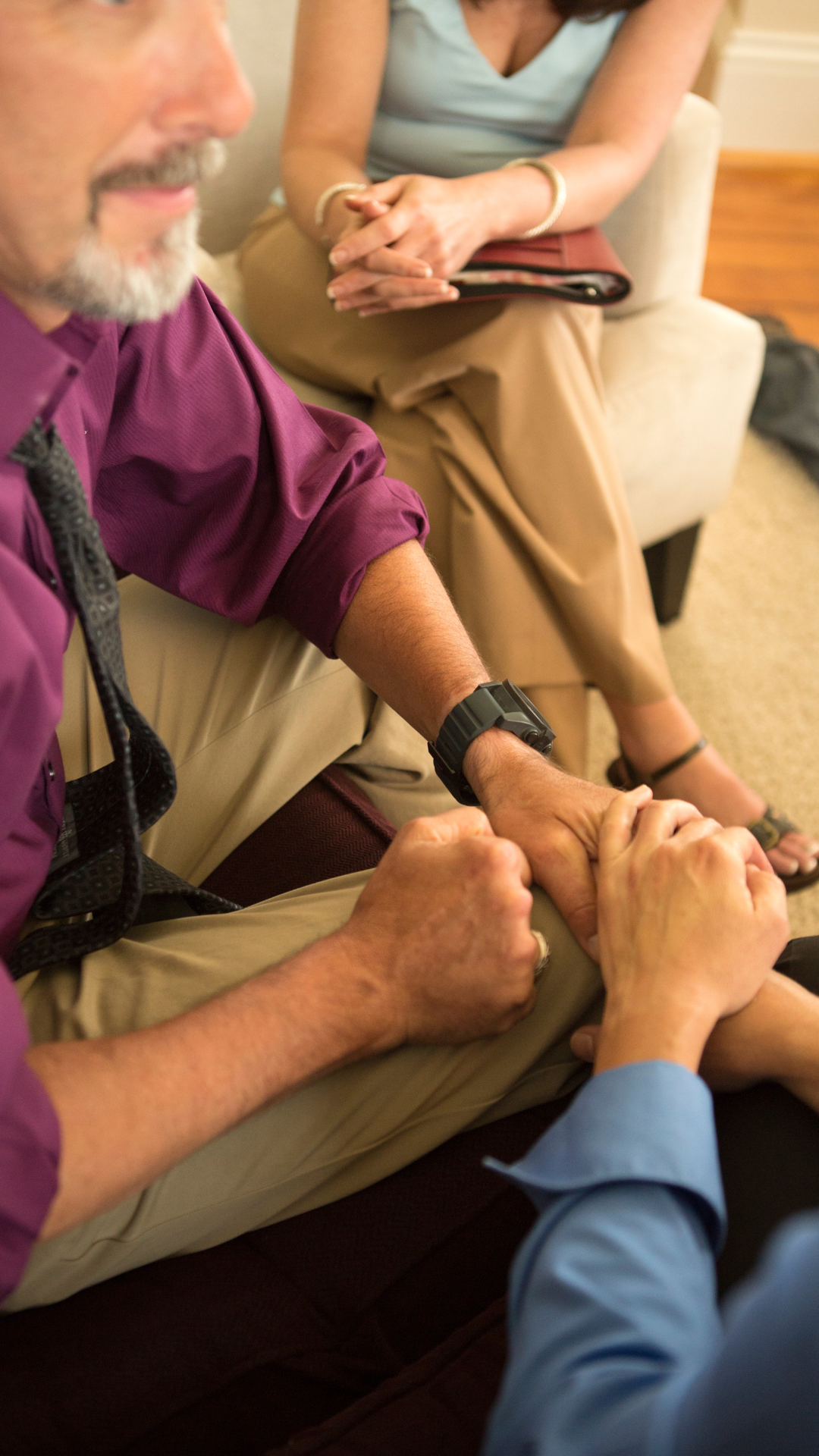A Comprehensive Guide to Marriage Counseling
Helping married couples reconnect & strengthen.
A Comprehensive Guide to Marriage Counseling
Every relationship is a unique journey, filled with shared joys, individual growth, and inevitable challenges. Sometimes, the path becomes difficult to navigate, and the connection you once cherished feels strained. It’s a common experience for partners to find themselves at a crossroads, unsure how to move forward. Marriage counseling offers a supportive space to rediscover your bond, improve communication, and build a stronger, more resilient partnership. This guide provides a clear overview of what marriage counseling entails and how it can empower you and your partner to transform challenges into opportunities for growth.

What is Marriage Counseling?
Marriage counseling, also known as couples therapy, is a specialized form of psychotherapy designed to help partners recognize and resolve conflicts and improve their relationship. It provides a neutral ground where you and your partner can explore your thoughts and feelings with the guidance of a trained therapist. The goal is not to assign blame but to equip you with the tools to communicate more effectively, negotiate differences, and deepen your emotional connection.
Therapy offers a structured approach to addressing the underlying issues that contribute to distress in a relationship. Whether you are facing a specific crisis or feel a growing distance between you, counseling can help you understand each other’s perspectives and work collaboratively toward a healthier, more fulfilling partnership.

The Benefits of Seeking Professional Guidance
Making the decision to attend counseling is a proactive step toward strengthening your relationship. The benefits extend far beyond resolving immediate conflicts.
Consider some of these powerful benefits:
Common Challenges Addressed in Marriage Counseling
Couples seek therapy for a wide range of reasons. No issue is too big or too small if it is causing distress in your relationship. Some of the common challenges we help partners navigate at Maplewood Counseling include:
- Communication Breakdowns: Feeling like you’re constantly misunderstanding each other or talking past one another.
- Frequent Arguments: When disagreements escalate quickly and rarely lead to a resolution.
- Loss of Intimacy: A decline in emotional closeness, physical affection, or sexual intimacy.
- Infidelity and Trust Issues: Rebuilding a relationship after a breach of trust requires careful, guided support.
- Financial Disagreements: Conflicts over money are a leading cause of stress in relationships.
- Parenting Differences: Disagreements on parenting styles and decisions can create a rift between partners.
- External Stressors: Job loss, health issues, or family problems can put significant pressure on a relationship.
- Feeling Disconnected: A general sense of growing apart or living more like roommates than partners.
How Therapy Can Help Your Relationship
Marriage counseling is a collaborative process. Your therapist acts as a facilitator, guiding conversations and providing tools, but the real work is done by you and your partner. The process is tailored to your unique situation and goals.
First, your therapist will help you identify the core issues and patterns that contribute to your challenges. This involves looking at how you communicate, how you handle conflict, and the unspoken expectations you both hold. By bringing these dynamics to light in a safe environment, you can begin to understand their impact.
Next, you will learn and practice new skills. This might include active listening, expressing emotions constructively, or problem-solving techniques. These tools empower you to break free from old, unhelpful habits. For instance, instead of falling into a cycle of criticism and defensiveness, you can learn to voice concerns in a way that your partner can hear and respond to positively.
Finally, therapy helps you build a new foundation for your relationship—one based on mutual respect, empathy, and a shared vision for the future. It’s an investment in your partnership that can yield a lifetime of returns, helping you not only overcome current obstacles but also face future challenges with confidence and unity.
How to Find the right Marriage Therapist
Choosing a marriage therapist is a meaningful decision that can shape the path of your relationship’s healing and growth. Finding someone you and your partner both feel comfortable with creates a safe space for honest conversations and real progress. Not sure where to start, or feeling overwhelmed by your options? You’re not alone—many couples share these concerns.
Consider these important factors as you begin your search:
- Credentials and Training: Look for a therapist who is licensed and has specialized training or certifications in couples or marriage counseling. This ensures they have the knowledge and skills to address relationship-specific challenges.
- Experience with Similar Issues: Every couple’s journey is unique, but it may be helpful to seek a therapist who has experience working with the specific issues you and your partner are facing, such as communication struggles, rebuilding trust after infidelity, or navigating parenting differences.
- Approach and Philosophy: Therapists may use different counseling methods, such as Emotionally Focused Therapy, the Gottman Method, or solution-focused techniques. It’s worthwhile to ask about their approach and what a typical session involves, so you feel confident their style matches your needs.
- Cultural Sensitivity and Inclusivity: It’s important to find a therapist who respects and understands diverse backgrounds, identities, and family structures. Don’t hesitate to ask how they support couples from various backgrounds or those with unique life experiences.
- Feeling of Comfort and Trust: Pay attention to how you and your partner feel during the initial contact or consultation. A sense of safety, understanding, and mutual respect is essential—a good therapist will help everyone feel heard and valued.
- Availability and Accessibility: Consider practical matters such as location, scheduling flexibility, and whether the therapist offers virtual sessions if that is helpful for you.
- Feedback and Recommendations: Personal referrals from trusted sources, reading “authentic” online reviews, or consulting professional directories can offer extra reassurance as you make your decision.
Trust your instincts as you explore your options, and remember—finding the right fit may take time. It’s okay to meet with more than one therapist before making your choice. The most important thing is finding a supportive guide who can walk with you and your partner as you work toward a healthier, more connected relationship.
Frequently Asked Questions (FAQs) About Marriage Counseling
It’s natural to have questions before starting therapy. Here are answers to some common inquiries.
What if my partner is unwilling to attend counseling?
This is a very common concern. It can be helpful to express your feelings to your partner without blame, focusing on your desire to improve the relationship for both of you. You might suggest attending just one session to see what it’s like. In some cases, starting therapy on your own can be beneficial. You can gain insight into your role in the relationship dynamics and learn strategies that can create positive change, which may eventually encourage your partner to join.
Is it too late for us? Will the therapist take sides?
It is rarely too late to seek help if both partners are willing to try. Counseling can be effective even when a relationship feels like it’s on the brink. A professional therapist’s role is to remain neutral and support the relationship itself. They are not there to judge or decide who is right or wrong, but to help both of you feel heard and understood.
How long does marriage counseling take?
The duration of therapy varies depending on the couple’s specific needs and goals. Some couples may find that a few sessions are enough to resolve a specific issue, while others may benefit from longer-term support to address more deep-seated patterns. Your therapist will discuss a potential timeline with you after the initial assessment.
What if we decide to separate during counseling?
While the goal of marriage counseling is typically to improve and preserve the relationship, sometimes couples realize that separating is the healthiest option. In these situations, therapy can be incredibly valuable. It can help you navigate the separation process amicably and respectfully, which is especially important if children are involved. This process is often called “discernment counseling.”
Are our sessions confidential?
Yes. Confidentiality is a cornerstone of therapy. Everything you discuss in your sessions is kept private, creating a safe space for you to be open and honest without fear of judgment or exposure. There are legal limits to confidentiality, such as if there is a risk of harm to yourself or others, which your therapist will explain in your first session.
How do we get started?
Taking the first step is often the hardest part, but we are here to make it as simple as possible. You can contact Maplewood Counseling to schedule an initial consultation. This first appointment is an opportunity for you to meet a therapist, discuss your concerns, and decide if it feels like the right fit for you and your partner. We are here to support you on your journey to a stronger, more connected relationship.

Marriage Counseling Resources
Helpful Articles
9 Common Challenges Older Couples Face & How to Overcome
9 Common Challenges Older Couples Face And How...
10 Healthy Ways to Manage Stress and Restore Your Peace
10 Healthy Ways to Manage Stress and Restore...
8 Things that Make a Tough Situation Worse
8 Things That Make a Tough Situation Worse And...






